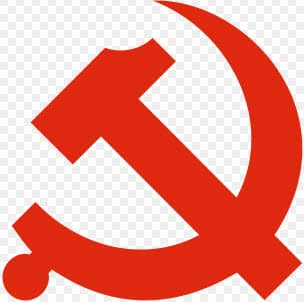
Most notable here in China was the absence of discussion or commentary.
This is perhaps understandable since it is Chinese government policy to celebrate past leaders’ birthdays rather than the anniversary of their passing. However, it also seems to be quite telling. According to the Wall Street Journal, one Weibo user contrasted the occasion to the 2014 anniversary of the death of Communist Party leader Hu Yaobang for whom “all kinds of media and officialdom [paid] unbridled tribute. But this year on the 40th anniversary of Mao’s death, it’s this quiet. Especially today, you don’t even see a few comments here or there.”
Why the silence?
Well, for one thing, Mao was a communist revolutionary responsible for the Great Leap Forward and the Cultural Revolution. Putting the merits of communist theory to one side, it could be argued that these initiatives were not exactly a run away success.
The Great Leap Forward (1958 to 1961) aimed to transform China by establishing agricultural collectives and pursuing rapid industrialisation, and ended up causing a period of economic decline and tens of millions of deaths.
The Cultural Revolution (1966 to 1976) aimed to maintain the communist ideology within China; a decade of violence and instability ensued.
Despite all of this, Mao remains a complex historical figure, widely regarded as the greatest Chinese figure of the 20th century, and the official government line remains that Mao was “70 percent correct and 30 percent wrong”.
It is understandable though if China’s government may want to distance itself from Mao as the years go by.
For one thing, Mao was a revolutionary, and the Communist Party would prefer to maintain stability and growth.
Over the last year, China’s GDP grew by around 6.7 percent; slow compared with historical growth rates over the last twenty years but still more than three times America’s GDP growth rate. At the current rate, the size of China’s economy will double in around ten years. This will open up new opportunities for Chinese workers, and help to lift millions of people out of poverty. At the same time, however, there are suggestions that China’s growth is being fueled by increasing amounts of debt. This could mean that current growth is unsustainable, and that lower growth and higher unemployment may be likely in future. The Communist Party are wise not to inspire a revolutionary sentiment.
Mao was also a communist, and advocated collective ownership and ideas like the removal of the class system; policies which sought to alienate people from capital assets like land and social status. These policies would have made it difficult for people to be productive or creative, resulting in economic stagnation.
China’s current growth and development depend on it embracing quite a different philosophy, one that allows people to develop and accumulate capital (whether it be intellectual, social, financial, natural, physical, or technological capital).
There is a common misconception that if China embraces the value of “capital” in helping people become more productive and creative, then it will need to adopt the American free market version of capitalism. This is of course not true. Germany and the Nordic countries have their own unique versions of capitalism. And China has embraced a version of state capitalism which seems appropriate given its culture and historical perspective.
Capital for you and me (and the state).
(Image Source: Wikipedia)